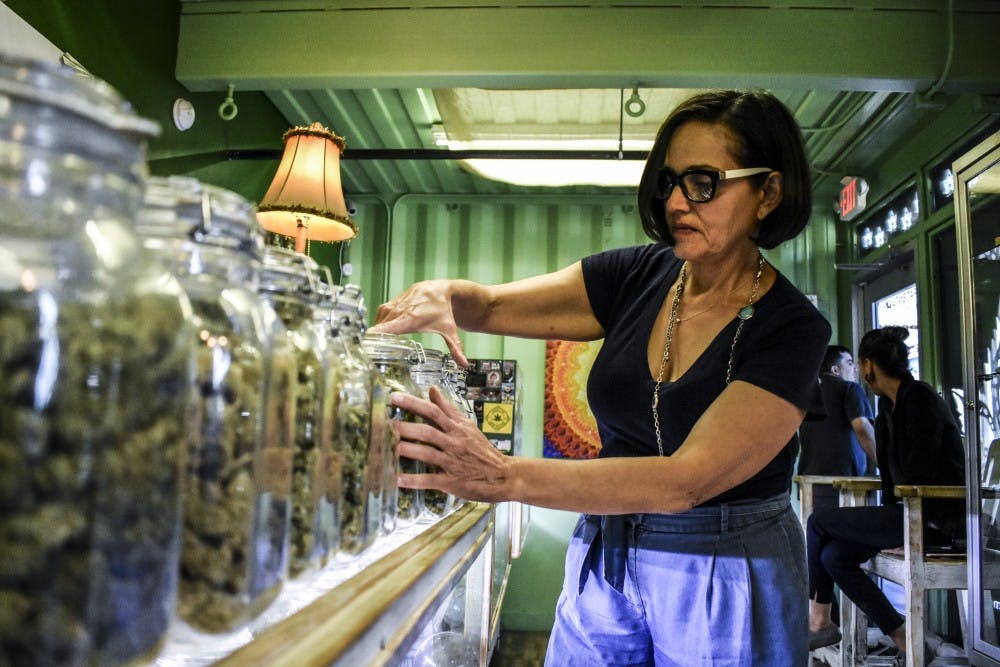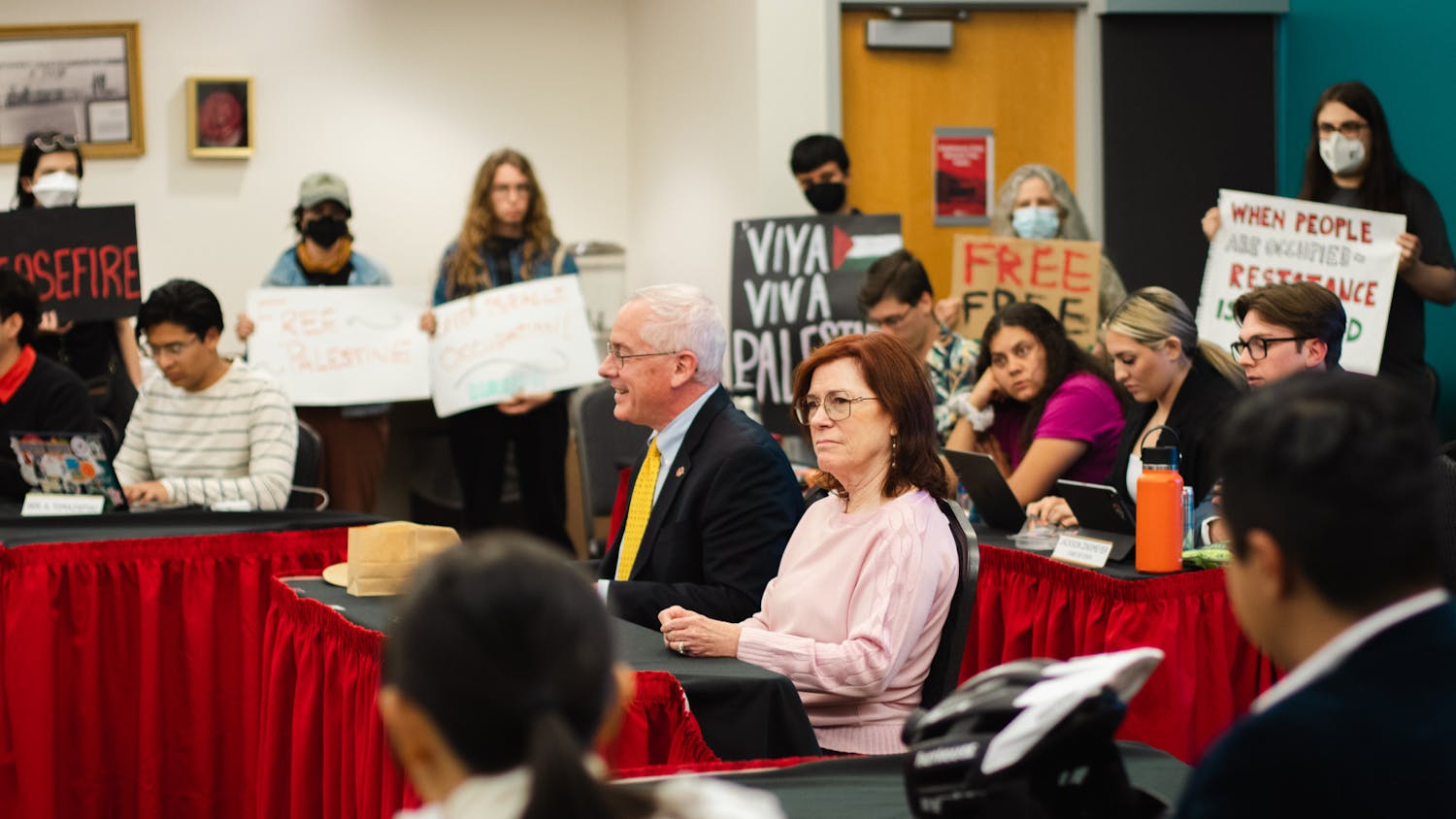Cannabis can go by many names — marijuana, ganja, weed, grass, sticky-icky or dank. Regardless of the name, cannabis has been used and cultivated for thousands of years.
With more than 1,000 different types of strains, it’s hard to believe that an ancient plant has made it to the top of the United States’ scheduled list of controlled substances, alongside heroin, all while cannabis’ medical properties continue to be overlooked by politicians with the help of pro-pharmaceutical lobbyists.
While cannabis is not a cure-all, it can help alleviate symptoms of larger problems — even social problems.
In 2015, more than 33,000 people died from opioid overdoses, surpassing gun homicides, according to an article in The Washington Post.
Cannabis can reduce rates of addiction and improve effectiveness of opiates if someone consumes cannabis first, then takes the prescribed opiate. A study performed on subjects with this method found that subjects reduced their opiate intake by one-third and continued to reduce opiate intake.
Not to mention that a study done by Drug and Alcohol Dependence concluded that states with access to cannabis have lower hospitalization rates for treating opioid overdoses.
A poll done by the Albuquerque Journal in 2016 found that 61 percent of New Mexicans support the legalization of recreational cannabis. Extending further, a poll done by CBS in 2017 shows New Mexico is in-step with the rest of the country; cannabis support has never been higher at 61 percent nationwide.
Think about it — if 61 percent of the population supports this, imagine how much of an impact this would have on the local and national economy.
Colorado has generated more than $500 million in revenue from cannabis taxes, licenses and fee revenues, according to 2017 data from the Colorado Department of Revenue. Even better, Colorado used this surplus of revenue to better fund infrastructure, social programs and schools.
While Colorado’s surplus is increasing, the state has experienced an increase in cannabis-related hospital visits, primarily among children, but alcohol remains ahead of cannabis in emergency room visits.
But please do not give minors a hit of your Sour Diesel, and always keep your edibles out of reach.
And if you are thinking about trying cannabis in a legal and safe environment, dose low and dose slow. This method can help reduce cannabis’ unpleasant side effects such as a dry mouth, watery eyes, paranoia and anxiety.
Get content from The Daily Lobo delivered to your inbox
Cannabis’ legalization also relieves cities from processing nonviolent drug offenses. It is also doing what the war on drugs has been failing to do for more than 30 years and is an effective way of siphoning funds from cartels and other black market suppliers.
In addition to less funding, cannabis-friendly states along the southern border experienced a drop in violent crime, according to the Economic Journal. The study reported cities within 350 km — or 217 miles — of the border experienced a 7 to 15 percent drop in violent crime. Also, from 2009 to 2015, seizure of illegal cannabis into the U.S. from the southern border decreased by almost 2.5 million pounds due to states creating their own cannabis laws.
With all of these benefits, maybe a legalization bill will get signed within the next 10 years?
On April 2, Albuquerque city councilors voted to pass a resolution to decriminalize the possession of cannabis, and on April 12 Mayor Tim Keller signed it into law. This makes carrying cannabis a civil offense, meaning violators would not face jail time, but rather a $25 fine. The old law said possession was a criminal offense and a first-time offender was required to do 15 days in jail and pay a $50 fine; penalties increased for repeated infractions.
This measure, backed by Albuquerque’s Police Union, was voted in favor 5 to 4 in the city council with one Democrat, Councilor Cynthia Borrego, voting against it.
In 2015, Albuquerque City Councilors passed a similar measure, but it was vetoed by former Mayor Richard Berry.
In November, New Mexicans will go to the polls to take part in national midterms and local elections. Two of the four New Mexico gubernatorial candidates support adult recreational use of cannabis.
In the meantime, for those partaking in 4/20 festivities, be safe and enjoy.
Anthony Jackson is a freelance reporter with the Daily Lobo. The views in this column are his own. He can be contacted at news@dailylobo.com or on Twitter @TonyAnjackson.






